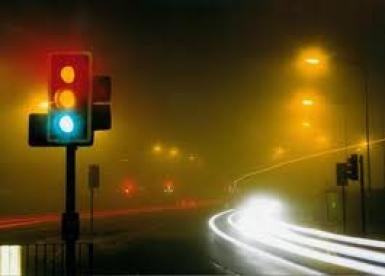Many private contractors are aware of the concept of governmental immunity, but it is unclear to many when and to what extent such immunity extends to work done on behalf of a governmental entity. On April 7, 2017, the Wisconsin Supreme Court answered this question when it issued a decision in Dr. Randall Melchert et al. v. Pro Electric Contractors et al., 2017 WI 30, holding that governmental immunity under Wis. Stat. § 893.80(4) extended to Pro Electric Contractors, a subcontractor hired to install traffic lights by the Department of Transportation for a 2011 project.
Pro Electric Contractors ("Pro Electric") inadvertently severed a sewer lateral while using an auger to drill a hole in a concrete slab for purposes of installing a traffic light in accordance with plans approved and issued by the Department of Transportation. Id. at ¶ 2. Pro Electric and the Department of Transportation engineer were unaware that a sewer lateral or any other utility facility was in the way of the excavation. Id. at ¶ 11. Pro Electric failed to realize a sewer lateral had been severed during the augering part of its operation. Unaware that any damage had occurred, Pro Electric backfilled the excavation, which was soon flooded by the compromised sewer lateral. Id. at ¶ 2. The flooding led to water damage to an adjacent lot owned by the Plaintiffs. Id.
Plaintiffs brought suit against Pro Electric, alleging: (1) Pro Electric was negligent in its excavation of the concrete slab; and (2) Pro Electric violated the Digger's Hotline statute, Wis. Stat. § 182.0175, when it failed to inspect the sewer lateral for damage and allow for repairs to be made. Id. at ¶¶ 3,4.
At the outset, Pro Electric asserted it was acting as an agent of the Department of Transportation while excavating the concrete slab and, thus, it should be provided protection from claims of negligence under Wisconsin's governmental immunity statute, Wis. Stat. § 893.80(4). Id. at ¶ 13. Specifically, Wis. Stat. § 893.80(4) provides:
No suit may be brought against any volunteer fire company organized under ch. 213, political corporation, governmental subdivision or any agency thereof for the intentional torts of its officers, officials, agents or employees nor may any suit be brought against such corporation, subdivision or agency or volunteer fire company or against its officers, officials, agents or employees for acts done in the exercise of legislative, quasi-legislative, judicial or quasi-judicial functions.
The court analyzed Pro Electric's proffered defense by noting that Wisconsin's courts recognize a longstanding principle that a governmental entity is immune from liability for acts done "in exercise of its legislative or judicial or quasi-legislative or quasi-judicial functions." Id. at ¶ 17. The court further clarified this principle by noting that "[l]egislative and quasi-legislative functions generally refer to those policy choices made in an official capacity, e.g., when a governmental entity chooses one project design over another." Id. at ¶ 18.
The court also noted that a governmental entity's immunity may extend to private contractors acting as agents of the governmental entity; however, a contractor asserting governmental immunity must prove two elements. Id. at ¶ 19. First, the contractor must show that it was an "agent" of the governmental entity under the Lyons test (i.e., whether the governmental entity approved reasonably precise specifications that the governmental contractor adhered to when engaging in the conduct that caused the injury). Id. Second, the contractor must be able to demonstrate that the conduct for which immunity is sought was the implementing of a governmental entity's decision made during the exercise of the entity's legislative, quasi-legislative, judicial, or quasi-judicial functions. Id. at ¶ 20.
These elements must be established because the contractor's immunity is dependent upon the immunity of the governmental act or decision that the agent was implementing when it caused an injury. Id. "If that act or decision was made during the exercise of the governmental entity's legislative, quasi-legislative, judicial, or quasi-judicial functions, the governmental entity's immunity may extend to an agent implementing that act or decision." Id. The court cautioned, however, that for a private contractor, such as Pro Electric, this is where immunity ends, as a contractor is not immune from liability if the governmental entity did not direct the injury-causing conduct with reasonable precision in the exercise of its legislative, quasi-legislative, judicial, or quasi-judicial functions. Id. at ¶ 21.
The court then applied the above principles to the case before it. First, the court analyzed whether Pro Electric adhered to reasonably precise specifications approved by the Department of Transportation when Pro Electric engaged in excavating the concrete base. Id. at ¶ 26. The Plaintiffs conceded that the specifications in the Department of Transportation's Project Plan were reasonably precise, and the court agreed. Id. Thus, the court next evaluated the reasonable specificity of the Department of Transportation's Project Plan. Because the Department of Transportation's Project Plan specified the method and precise dimensions of the excavation, the court held the Department of Transportation's specifications were reasonably precise, as the specifications left Pro Electric with minimal discretion as to how the excavation should be done. Id.
The court next analyzed whether Pro Electric adhered to the Department of Transportation's reasonably precise specifications when it augered the hole. Id. at ¶ 27. Again, Plaintiffs conceded that Pro Electric adhered to the Department of Transportation's reasonably precise specifications and, again, the court agreed, as Pro Electric carried out the Department of Transportation's specifications exactly as directed. Id.
Finally, the court analyzed whether the Department of Transportation adopted the specifications for Pro Electric's augering in the exercise of its legislative or quasi-legislative functions. In doing so, it held that the Department of Transportation's Project Plan, which instructed Pro Electric to excavate the concrete base in question, was the product of the Department's legislative or quasi-legislative functions, applying well established precedent that decisions concerning the design and placement of individual elements incorporated into larger government construction projects constitute legislative or quasi-legislative decisions. Id. at ¶ 22. Specifically, the court stated that, in choosing to approve the Project Plan utilized by Pro Electric, the Department of Transportation was exercising its legislatively delegated authority to "direct, undertake and expend state and federal aid for planning, promotion and protection activities in the area of highways, motor vehicles, [and] traffic law enforcement . . . ." under Wis. Stat. § 85.02(1). Id. at ¶ 29.
Thus, because the court found Pro Electric satisfied both required elements for purposes of asserting governmental immunity under Wis. Stat. § 893.80(4), the Department of Transportation's immunity was found to have extended to Pro Electric's act of severing the sewer lateral. As a result, the Plaintiffs' negligence claim was dismissed. Id. at ¶ 30.
The court next quickly addressed Plaintiffs' claim that Pro Electric violated the Digger's Hotline statute, Wis. Stat. § 182.0175(2). The court noted that, if Pro Electric violated the Digger's Hotline statute, Pro Electric's immunity would not extend to such a violation, as Pro Electric's requirements under the Digger's Hotline statute, if any, were independent of the Department of Transportation's Project Plan. Id. at ¶ 34. In other words, Pro Electric was not acting as the Department of Transportation's agent when Pro Electric carried out its duties under the Digger's Hotline statute. Id. The court held Pro Electric complied with any and all duties imposed on it under the Digger's Hotline statute, as Pro Electric contacted Digger's Hotline at least three days before beginning excavation, and no evidence existed that any markings were present with regard to a sewer lateral being in the excavation area. Id. at ¶ 40. The court also opined that the duty to mark buried transmission facilities—including sewer laterals—fell on property owners, not on an excavator. Id. Consequently, the Plaintiffs' claim under the Digger's Hotline statute was also dismissed. Id.
The Pro Electric, Inc. case is important for governmental entities and contractors or other third parties hired by such governmental entities, as the case further clarifies the extent to which governmental immunity extends to private contractors acting as agents of a governmental entity and what elements must be present for such immunity to exist in the first place. Governmental entities and their contractors must recognize, however, that the conduct of contractors and other agents acting on behalf of the governmental entity will only receive immunity if such conduct is engaged in for purposes of carrying out reasonably precise specifications approved by a governmental entity in the exercise of its legislative, quasi-legislative, judicial, or quasi-judicial functions. Any conduct engaged in by contractors or other third parties outside that scope is not subject to governmental immunity under Wis. Stat. § 893.80(4) and, therefore, could subject the contractor or other third party to liability. Due to the limited scope under which governmental immunity is available, governmental entities and contractors or other third parties hired by such governmental entities are strongly encouraged to consult with legal counsel before engaging in government projects so as to determine whether the conduct required for such projects is covered under Wis. Stat. § 893.80(4).





 i
i

